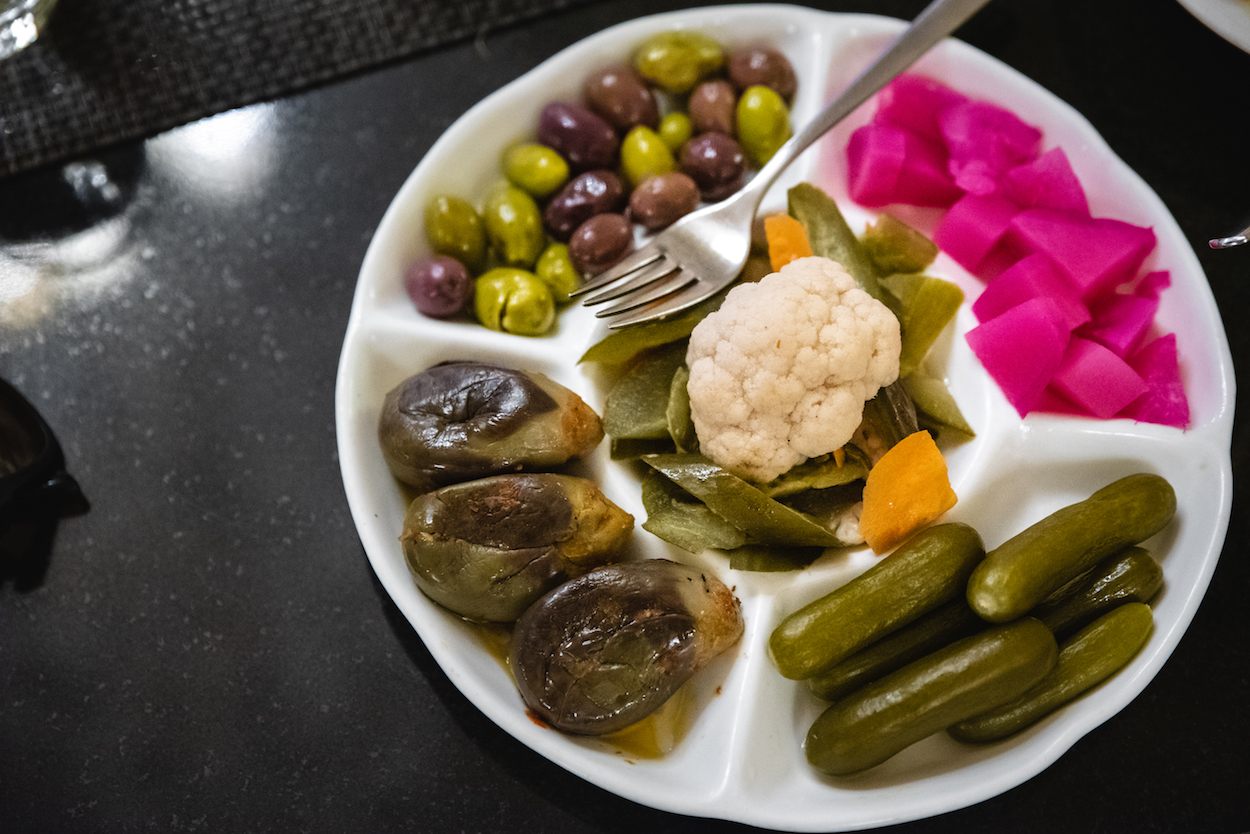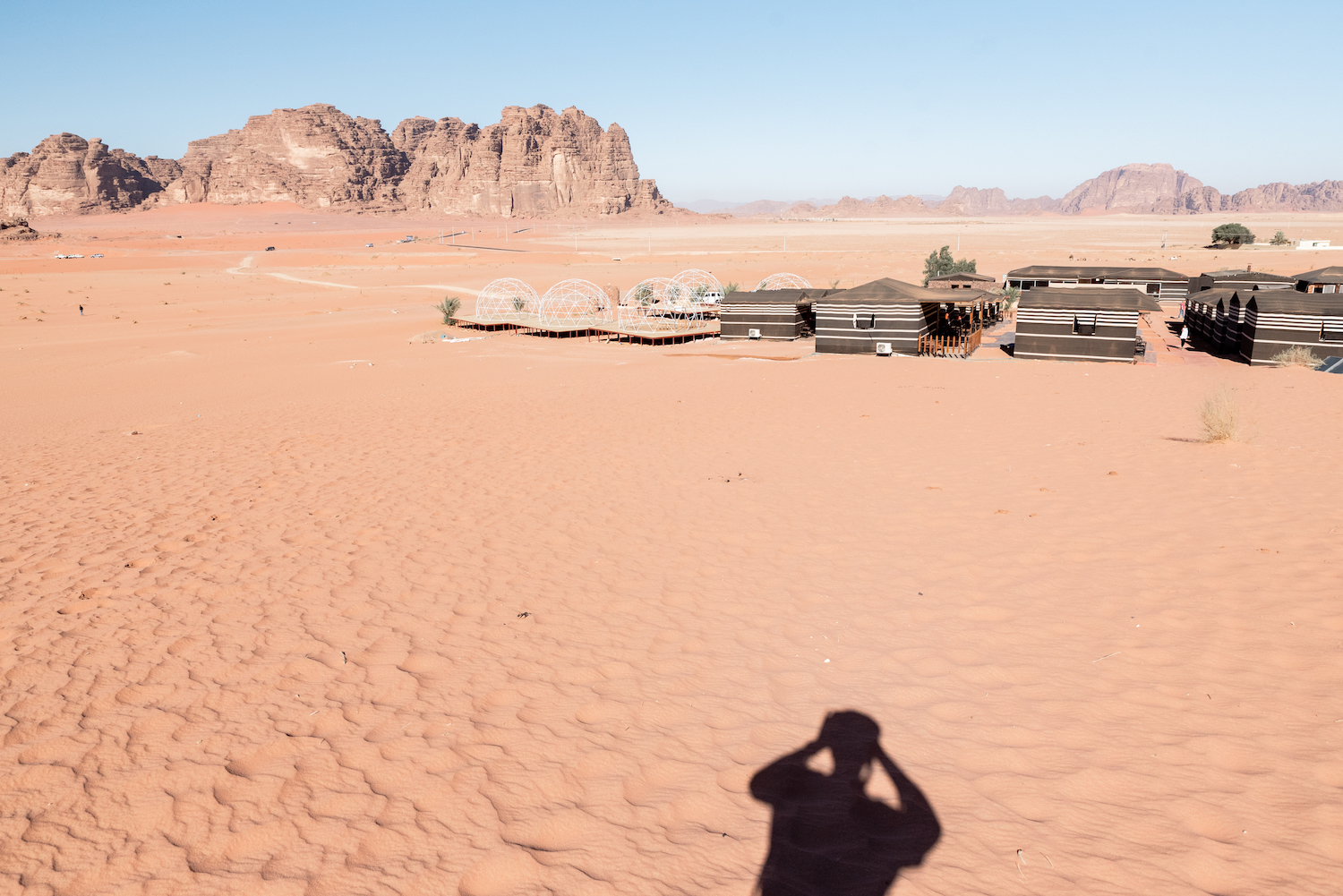Last updated on February 6, 2019
Your gateway to Middle Eastern culture, Jordan is a happy soul, a peace-loving land of fascinating history and culture, of otherworldly landscapes, warm welcomes and delectable food.
Here, with essential travel advice and tips on exploring the likes of Petra, Amman and the Wadi Rum desert, is my guide to the very best things to do in Jordan – especially if it’s your first visit.

But first… Is Jordan safe?
First things first: Yes! Jordan is absolutely safe to visit. If anything I felt safer in Jordan than in parts of Europe (and America).
Nestled in the bosom of Israel, Palestine (West Bank), Iraq, Syria, Saudi Arabia and the Dead Sea, you’d be forgiven for asking why Jordan is safe.
I made a point of asking everyone I met in Jordan why their country is considered a safe place to visit when there is so much unrest within such close proximity.
The answers were more or less always the same: “We love our country and we work together to protect it.”
Harmony and Tolerance

Jordan has long been a country of different religious faiths that have been practised alongside each other in harmony for many hundreds if not thousands of years.
The country’s strength lies in this tolerance and shared sense of national pride – anything that threatens the peace is seen as a threat that the Jordanians come together to oppose.
Community and Civic Duty
 I learned that Jordan is made up of large families and tribes, all of which have figureheads who do a whole lot of talking. If and when there are problems, they are discussed, not fought over.
I learned that Jordan is made up of large families and tribes, all of which have figureheads who do a whole lot of talking. If and when there are problems, they are discussed, not fought over.
This ‘togetherness’ has made it impossible for extremists to infiltrate, largely due to the fact that Jordan lacks the social divisions that ISIS relies on to find its footing.
Pride and Prejudice
 There’s a huge stigma attached to terrorism and extremism in Jordan. So much so, in fact, that families have been known to disown relatives who have joined or associated with terrorist groups.
There’s a huge stigma attached to terrorism and extremism in Jordan. So much so, in fact, that families have been known to disown relatives who have joined or associated with terrorist groups.
While visiting the Dead Sea, I also learned that Jordan has a sort of secret police that basically exists purely to keep an eye out for suspicious behaviour. “You wouldn’t know it, but the guy next to you swimming in the sea, or eating on the next table in the restaurant, he could be one of the agents we have looking out for potential threats.”
There’s a serenity about the Jordanians that I found incredibly soothing. Everyone I encountered seemed so genuinely welcoming and passionate to share their culture with me.
Essential Things to Do in Jordan
1. Immerse Yourself in Amman – Jordan’s Capital
 Sprawling out over a tumble of craggy hills, Amman (aka ‘The White City’) is known as one of the Middle East’s most progressive and liberal cities.
Sprawling out over a tumble of craggy hills, Amman (aka ‘The White City’) is known as one of the Middle East’s most progressive and liberal cities.
The foundations rest on the Iron Age site of Rabbath Ammon and the city has been passed from ruler to ruler over the centuries. The Greeks and Romans named it Philadelphia and it wasn’t until the 19th century that it became known as ‘Amman, capital of Jordan’.
Also referred to locally as Al-Balad, Amman’s historic centre is home to the old citadel and the Roman Amphitheater. Downtown Amman is a hive of activity and is where you’ll find the city’s souks (markets) and museums, as well as the famous Rainbow Street which is lined with cafes, restaurants and shops.


But for total immersion, head straight to Amman’s Citadel. Built around 800 AD, it offers sweeping views over the hills that make up the city, as well as its 6,000-seater Roman amphitheatre.

The Citadel also harbours the spectacular Temple of Hercules and the remains of the 8th century Umayyad Palace.
You have arrived.
Tip: Assuming you want to see everything in a relatively small amount of time, I’d suggest taking this tour of Amman to make sure you don’t miss anything.
Other things to see and do in Amman include:
Eat Like a Local in El-Weibdeh: This is one of Amman’s oldest areas and is known for it’s many restaurants, bars and live music venues. I would also have loved to have done this home dining experience with a local family – check it out if you have time.
Live the High Life in Abdoun: This is the “posh” part of Amman and is home to some of the city’s more exclusive bars, restaurants, cafes, nightclubs and shops.
Relax in Al Hussein Park: This is Amman’s main park and is a leafy public space with tennis courts, football and basketball facilities, as well as a Children’s Museum and the Royal Automobile Museum.
2. Journey Through the Canyons of Petra – Jordan’s ‘Rose City’

Jordan’s most famous destination, Petra is a historic city carved into a series of Mars-like canyons.
The entrance to the city follows an ancient river that has carved its way through the rock over thousands of years, polishing it smooth in the process.








As you wend your way through these cavernous corridors, the stone blushes from a golden shade of yellow to a rich crimson-red that makes you feel like you’re exploring a new planet.
The Treasury





 After a 1 km walk, during which you’ll meet local horse-taxi-riders and young postcard-sellers, you’ll arrive at Petra’s iconic Treasury. Chiselled straight into the rock from the top down, this awe-inspiring 40 metre high structure is over 2,000 years old.
After a 1 km walk, during which you’ll meet local horse-taxi-riders and young postcard-sellers, you’ll arrive at Petra’s iconic Treasury. Chiselled straight into the rock from the top down, this awe-inspiring 40 metre high structure is over 2,000 years old.
Although it’s hard to believe, this city of stone was home to around 2,000 people up until 2006, when it was declared an official UNESCO World Heritage Site.
Today, Petra’s Treasury is one of the ‘New Seven Wonders of the World’, and you will most likely recognise it as the temple in the Indiana Jones movie, The Last Crusade.




Treasury Tips: You’ll want a full day to do Petra’s treasury, monastery, caves and tombs justice, so be sure to stay in the area overnight – I stayed at the refined Petra Marriot Hotel, which is run entirely on renewable energy.
Also check out this excellent 2-day tour from Amman, which visits all the ‘must-sees’, including Petra, Wadi Rum desert and the Dead Sea.
3. Eat and Drink Like the Jordanians

 Jordan’s unique geographic location means it is something of a cultural and culinary crossroads. I love nothing more than digging into local dishes when I travel and can say, as a self-professed gastro-naut, that Jordan is a spectacularly satisfying place to eat.
Jordan’s unique geographic location means it is something of a cultural and culinary crossroads. I love nothing more than digging into local dishes when I travel and can say, as a self-professed gastro-naut, that Jordan is a spectacularly satisfying place to eat.
Jordanian cuisine is based in Mediterranean fare elevated with bold herbs and spices. Most meals start with fresh bread and a selection of dips – wholesome hummus and smoky ‘mutabal’ (made with eggplant). Then you’ll typically be served grilled meat, with lamb being the national favourite.
I also enjoyed some fantastic Jordanian beers and the local wine is winning over critics the world over. If you love wine then check out this wine tasting session while you’re in Amman.





 Note: Most waiters will typically only mention soft drinks when you ask what’s available, but they will be happy to serve you alcohol if that’s what you want. Just be aware that beer and wine (alcohol in general) is relatively very expensive in Jordan and is not normally included in the price of set meals that offer free drinks).
Note: Most waiters will typically only mention soft drinks when you ask what’s available, but they will be happy to serve you alcohol if that’s what you want. Just be aware that beer and wine (alcohol in general) is relatively very expensive in Jordan and is not normally included in the price of set meals that offer free drinks).
4. Camp Under the Stars in the Wadi Rum Desert

 There is something incredibly soothing about desert life, especially when experienced in the otherworldly Wadi Rum desert. With its burnt scarlet sands and lunar rock formations, it looks very much the surface of Mars and is often referred to as the ‘Valley of the Moon’.
There is something incredibly soothing about desert life, especially when experienced in the otherworldly Wadi Rum desert. With its burnt scarlet sands and lunar rock formations, it looks very much the surface of Mars and is often referred to as the ‘Valley of the Moon’.
In fact, it looks so much like another planet that it features in Hollywood blockbusters including The Martian, Star Wars, and Transformers. And, of course, most famously of all it was the main setting of the classic film Laurence of Arabia, which won no less than seven Academy Awards.



It’s my memories from here, as I bounced from dune to dune in the back of a four-wheel-drive truck with my new friends from the Czech Republic press (it’s a long story), that I remember most fondly from my time Jordan.
This martian expanse of sunbaked land sits on a historically important trading route and has been inhabited by the nomadic Bedouin people for hundreds of years.

 Camel caravans have long passed through on the famous King’s Highway, trading frankincense and spices, while armies and crusaders have also sought solace here on their way to and from war.
Camel caravans have long passed through on the famous King’s Highway, trading frankincense and spices, while armies and crusaders have also sought solace here on their way to and from war.
Over the centuries, the transient nature of the area has seen the Bedouins become skilled hosts and they continue to pride themselves on being generous and hospitable with all of their guests.


Wadi Rum Tips: For the full Bedouin experience, stay overnight at one of the many glamping sites dotted throughout the Wadi Rum desert. I stayed at the friendly Hasan Zawaideh Camp, a comfortable option with private huts (each with private bathrooms). The staff prepare a nightly zarb feast for all guests, a traditional way of cooking lamb and vegetables underground, and provide music, dance and shisha. They can also arrange four-wheel-drive tours and treks.
5. Float Your Aches and Pains Away in the Dead Sea

Hemmed in by Jordan, Israel and the West Bank, the Dead Sea is a salt lake located more than 400m below sea level, making it the lowest point on Earth.
It’s said to be ten times saltier than ‘normal’ sea water, meaning swimmers float effortlessly on its surface and benefit from a wide range of naturally healing properties.



The Dead Sea is high in magnesium, calcium and potassium, giving it therapeutic qualities that are said to help people with skin conditions and joint pain. You will also see people caking themselves in the mineral-rich mud before taking a dip.



 Dead Sea Tip: For a truly rejuvenating and luxurious experience, do as I did and check in at the double deluxe Hilton Dead Sea Resort & Spa. It offers direct and private access to the Dead Sea and is arguably the most luxurious place you could stay at in Jordan.
Dead Sea Tip: For a truly rejuvenating and luxurious experience, do as I did and check in at the double deluxe Hilton Dead Sea Resort & Spa. It offers direct and private access to the Dead Sea and is arguably the most luxurious place you could stay at in Jordan.
I’d also recommend taking a tour of the Dead Sea and the famous Baptism site.
6. Witness the Promised Land from Mount Nebo

Situated some 800 metres above sea level, Mount Nebo is named in the Bible as the place where Moses first saw the Promised Land.
It offers spectacular views over the Holy Land and on a clear day you can see over the Baptism Site, Jerusalem, Jericho, the Dead Sea and Amman.
A truly soul stirring experience, whether you’re religious or not.
7. See the Ancient Mosaics of Madaba
 Situated within a 20-minute drive from Queen Alia International Airport, the market town of Madaba is a popular stop off point for travellers flying in and out of Jordan.
Situated within a 20-minute drive from Queen Alia International Airport, the market town of Madaba is a popular stop off point for travellers flying in and out of Jordan.
It is home to one of Jordan’s largest Christian communities and is renowned for its stunning collection of Byzantine-era mosaics, the most famous of which being the Madaba Map of the Middle East.
Sheltered inside the Greek Orthodox church of Saint George, it dates back to the 6th century AD and is the oldest surviving depiction of the Holy Land. A fascinating experience, regardless of your religious beliefs.
Definitely do this tour if you want to make sure you see and do all of this properly.
To Conclude
 This trip was honestly one of the most rewarding I’ve ever experienced. From Amman to Petra, Wadi Rum to the Dead Sea, the people I met in Jordan were so polite and sincerely welcoming, so proud and excited to share their culture.
This trip was honestly one of the most rewarding I’ve ever experienced. From Amman to Petra, Wadi Rum to the Dead Sea, the people I met in Jordan were so polite and sincerely welcoming, so proud and excited to share their culture.
This was my first time in the Middle East and I can’t wait to get back. It’s not “beautiful” in the traditional sense of the word, but it did truly stir my soul on a deep level.
I think we all tend to think of the way we live as being the normal way to live, or even the “right way”, but visiting somewhere like Jordan gives you a fresh perspective, an understanding that there are many “normal” ways to live. That maybe we don’t have all the answers after all.
If you’ve ever had an inkling to visit the Middle East, to see, feel and understand for yourself, I would highly recommend visiting Jordan.
Make it Happen

Get there: I flew direct from Prague to Queen Alia Airport with Ryanair – find flights here.
Get around: Something I feel quite compelled to mention is how terrifying the roads were. Jordan is a relatively small country, but we spent many hours on the road getting from one place to another and I felt extremely glad that I didn’t have to worry about driving. Our driver did a great job of keeping us safe, counting his rosary beads all the while. I would advise you to join tours (suggestions below) when possible or to at least hire a driver.
Recommended Tours in Jordan
Petra and Wadi Rum: 3-Day Guided Tour from Tel Aviv (Great option if you’re coming from the other side.)
2-Day Trip: Petra, Wadi Rum, Red Sea (Aqaba) and Dead Sea
Jordanian Wine Tasting Session in Amman
Full-Day Tour from Amman to Petra on the Kings’ Highway
Where to Stay in Jordan

Where to stay in Amman: For a taste of modern-day Jordanian life and elevated views of the city, stay at the gorgeous Le Royal Hotel.
Where to stay in Petra: The Petra Marriott Hotel is a fantastic place to stay nearby and is run entirely on renewable energy. I also did the “Petra by Night” experience but wouldn’t recommend it – if you only have time to see Petra once, you should definitely see it during daylight hours.
Where to stay near the Dead Sea: For a truly rejuvenating experience, check in to the sumptuous Hilton Dead Sea Resort & Spa. It offers direct and private access to the Dead Sea and is arguably the most luxurious place you could stay at in Jordan.
Wadi Rum Bedouin Camps: For the full Bedouin experience, stay at one of the many glamping sites dotted throughout the Wadi Rum desert. I stayed at the friendly Hasan Zawaideh Camp, a comfortable option with private huts (each with private bathrooms). The staff prepare a nightly zarb feast for all guests, a traditional way of cooking lamb and vegetables underground, and provide music, dance and shisha. They can also arrange four-wheel-drive tours and treks.
Have you been to Jordan or anywhere else in the Middle East? Or would you like to go?
I’d love to hear about your experiences. Join me on Instagram / Facebook / Twitter / Pinterest / YouTube to let me know!


Going to make it happen! Going to all the places on the tour I am looking at with Jules Verne
That’s great to hear Bob! Yes, I’d definitely recommend doing a tour. Let me (us) know how your trip goes!